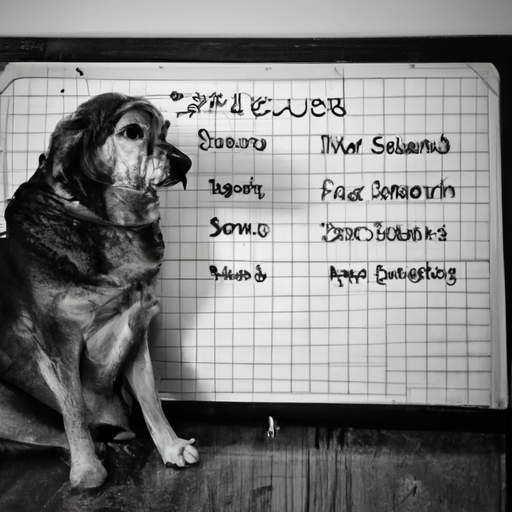As a caregiver, you always want what’s best for your furry friend. Understanding the proper frequency and intake of food for your dog is crucial to their overall health and longevity. Let’s delve deep into this essential aspect of canine care.
Table of Contents
- Understanding Your Dog’s Nutritional Needs
- Frequency of Feeding
- Factors Influencing Meal Frequency
- Creating a Balanced Diet
- Common Mistakes to Avoid
- Frequently Asked Questions
Key Takeaways
- Dogs’ nutritional needs vary based on age, breed, health status, and activity level.
- Puppies should eat three to four times a day, while adult dogs may eat one to two times.
- Consult with a vet to determine the best feeding schedule and diet for your pet.
- Balance is key in a dog’s diet.
- Avoid free-feeding and overfeeding.
Understanding Your Dog’s Nutritional Needs
Just like humans, dogs have specific nutritional requirements that change over their lifespan. Puppies need more frequent feeding than adult dogs due to their rapid growth and high energy levels. Adult dogs, on the other hand, may only require one to two meals a day to maintain a healthy weight and metabolism. It’s essential to understand your dog’s unique nutritional needs, which can be guided by a veterinary nutritionist.
Frequency of Feeding
Puppies up to six months old generally require three to four meals a day. This is due to their rapid growth and high energy expenditure. As they grow into adolescents (six months to a year), you can gradually reduce to two meals a day, depending on their size and breed.
Adult dogs, particularly those of large breeds, may only require one meal a day, while smaller breeds often benefit from two smaller meals. However, these are general guidelines and individual needs can vary. Always consult your vet to determine the best feeding schedule for your dog. For more insights, check out this informative post on OneTopDog.
Factors Influencing Meal Frequency
Several factors can influence how often your dog should eat. These include age, breed, health status, and activity level. For instance, active breeds such as Border Collies may require more frequent feedings than less active breeds like Basset Hounds. Similarly, a dog with a health condition like diabetes may need a different feeding schedule than a dog without such issues.
Creating a Balanced Diet
A balanced diet is crucial for your dog’s overall health. This should include the right proportions of protein, carbohydrates, fats, vitamins, and minerals. Commercial dog foods often provide this balance, but some caregivers choose to prepare homemade meals for their pets. If you’re considering this, consult with a vet or a pet nutrition expert to ensure your dog gets all the nutrients they need. You can find more about creating a balanced diet for your dog here.
Common Mistakes to Avoid
Caregivers often make mistakes when feeding their dogs. One common error is free-feeding, where food is available to the dog at all times. This can lead to overeating and obesity. Another mistake is overfeeding, which often occurs when caregivers misjudge the amount of food their dog needs. Always use a measuring cup to ensure your dog gets the right amount of food. Learn more about common feeding mistakes here.
Frequently Asked Questions
1. Can I feed my dog once a day?
Yes, some adult dogs can be fed once a day. However, this may not be suitable for all dogs, especially small breeds which may require more frequent meals.
2. Should I leave food out for my dog all day?
No, free-feeding can lead to overeating and obesity. It’s best to stick to a regular feeding schedule.
3. What if my dog is still hungry after eating?
First, ensure you’re feeding your dog the right amount of food. If your dog is still hungry after eating the correct portion, consult your vet. Your dog might be hungry due to a health issue or a lack of certain nutrients in their diet.
By understanding your dog’s unique needs and maintaining a balanced diet, you can ensure your furry friend stays happy and healthy. Always consult with a vet or pet nutrition expert to determine the best feeding schedule and diet for your dog.



